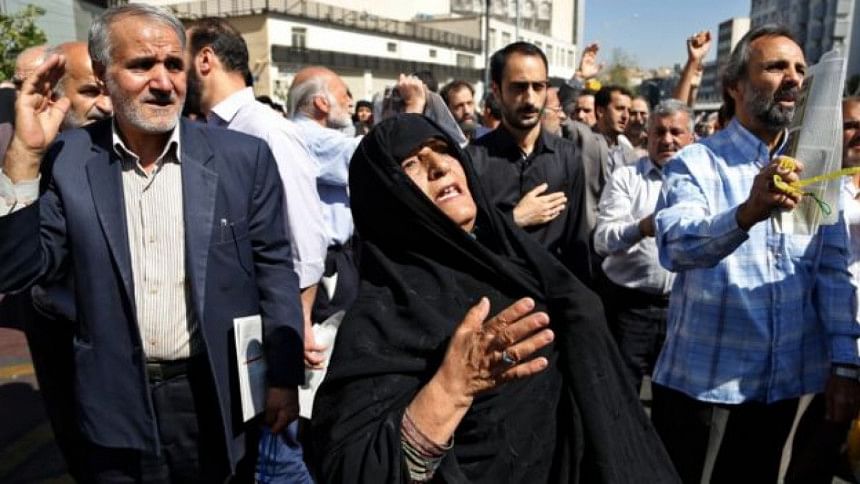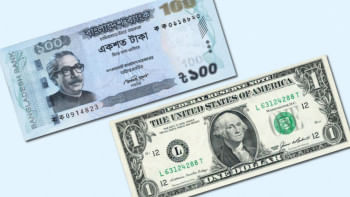Criticism grows over Hajj deaths

Iran has led growing criticism of Saudi Arabia after at least 717 people died and 863 were injured in a stampede near the holy city of Mecca on Thursday.
Iran's Supreme National Security Council accused the Saudis of "incompetence" and urged them to "take responsibility" for the deaths.
Nigeria has dismissed remarks by the Saudi health minister blaming pilgrims for "not following instructions".
King Salman has ordered a safety review for the Hajj pilgrimage.
The crush occurred at 09:00 local time (06:00 GMT) on Thursday as two million pilgrims were taking part in the Hajj's last major rite.
The pilgrims throw seven stones at pillars called Jamarat, which stand at the place where Satan is believed to have tempted the Prophet Abraham.
With temperatures around 46C, two massive lines of pilgrims converged on each other at right angles at an intersection close to the five-storey Jamarat Bridge in Mina, a large valley about 5km (3 miles) from Mecca.
This is the deadliest incident to occur during the pilgrimage in 25 years.
It is also the second disaster to strike in two weeks, after a crane collapsed at the Grand Mosque in Mecca, killing 109 people.
Iran, Saudi Arabia's regional rival, has reported the greatest number of deaths among foreign nationals - 131 - and has reacted with the greatest anger.
On Friday, the spokesman for its Supreme National Security Council, Keyvan Khosravi, told the Isna news agency: "The unavoidable fact is that the Saudi government has been incompetent in this regard and with regard to the management of the Hajj pilgrimage, and Riyadh must accept responsibility for this."
He was echoing Supreme Leader Ayatollah Ali Khamenei, who said on Thursday that Saudi "mismanagement and improper actions have caused this catastrophe".
Iran has declared three days of national mourning. Protesters marched in Tehran shouting slogans against Saudi Arabia's ruling al-Saud family.
Alaeddin Boroujerdi, head of an Iranian parliamentary committee for national security, called on other Islamic countries to lodge protests with the Saudis.
The incident may worsen relations between the two countries, already strained by opposing stances on the conflicts in Syria and Yemen.
The Saudis have spent billions on improving transport and other infrastructure since the last major Hajj incident nine years ago. The millions of pilgrims who come each year also bring billions of dollars to the Saudi economy.
Saudi Arabia's Crown Prince Mohammed bin Nayyef, who chairs the Hajj committee, has begun an immediate inquiry into the tragedy, with "fast" results promised.
Offering his condolences to the relatives of the dead, King Salman said: "We have instructed concerned authorities to review the operations plan and to raise the level of organisation and management to ensure that the guests of God perform their rituals in comfort and ease."
The number of pilgrims was fewer on Friday, AFP reported, and there was more organisation from the authorities at entry points.
Health Minister Khaled al-Falih told el-Ekhbariya television that if pilgrims "had followed instructions, this type of accident could have been avoided".
One Mecca resident, Fathima Mohamed, told the BBC: "I was in the crowd and most people... are very peaceful. Then you get the young people and the heat is quite unrelenting. People want to do it quickly, they want to finish everything and because of the fact that it would get hot, people were pushing."
However, the head of Nigeria's Hajj delegation, the Emir of Kano Muhammadu Sanusi II, told the BBC the crush "happened on the designated ways for incoming and outgoing pilgrims to the site, [where they were] crossing each other" - something he said should not have happened.
"We are therefore urging the Saudi authorities not to apportion blame to the pilgrims for not obeying instructions."
The UK Foreign Office said it was urgently seeking more information about whether British nationals were involved.
The Hajj is the fifth and final pillar of Islam. It is the journey that every able-bodied adult Muslim must undertake at least once in their lives if they can afford it.
Regional media: Saudis attacked and defended
Lebanon's pro-Hezbollah al-Diyar newspaper says the Muslim world "has been shaken in its entirety". In Egypt, a banner in al-Dustur reads "Blood on the Jamarat Bridge", alongside images of rows of dead bodies.
There is some strong criticism of Saudi Arabia. Syria's al-Ba'th blames the government for its "failure" to manage the Hajj properly while Iran's al-Vefagh quotes an official as saying that Riyadh has shown for years that it is "inadequate" in handling the stone-throwing ritual.
However, the Qatari newspaper al-Rayah says the organisers "are not to blame. The kingdom has proved its competence in handling the Hajj". A commentator in Bahraini daily al-Wasat accuses Riyadh's critics of "gloating over what happened", saying "Saudi Arabia did nothing wrong".
Saudi pro-government dailies are similarly defensive. "Nobody should criticise the kingdom, given the efforts it makes to serve pilgrims", al-Watan says, adding that Saudi Arabia would "spare no efforts" in its investigations.

 For all latest news, follow The Daily Star's Google News channel.
For all latest news, follow The Daily Star's Google News channel. 



Comments